| Gemstone Chart |
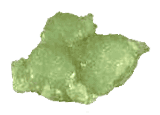 Natural Prehnite Natural Prehnite
Prehnite is a hydrated calcium aluminum silicate that occurs in a soft yellow-green to apple-green color.It was a rare gemstone, most prehnite is translucent but transparent specimens are sometimes found.While you are unlikely to find it in your local jewelry store, gemstone dealers often have some supply. Deposits are found in South Africa, Australia, China, Scotland and the United States.
Color: yellow green, brown, yellow brown, oil green
Categories: semi-precious stone
Chemical Composition: (CA2Al2SI3O10(OH)2)
Crystal Group: Orthorhombic
Refractive Index: 1.61 - 1.64
Hardness: 6
Density: 2.80 - 2.95
Occurrence: China, France, U.S.A., Scotland, Australia
| 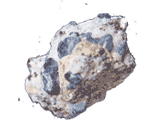 Natural Sapphirine Natural Sapphirine
Sapphirine is a rare mineral, a silicate of magnesium and aluminium.Though Sapphirine clearly falls into the "rare stone" category, it is a relatively durable stone with a Moh's hardness of 7.5. Sapphirine's very distinctive appearance along with their somewhat unusual durability have made them fairly popular with collectors.
Color: Pale blue, bluish gray, greenish gray, green, purplish pink
Categories: semi-precious stone
Crystal Group: Monoclinic
Refractive Index: 1.714-1.723
Hardness: 7.5
Density: 3.4-3.5
Occurrence: U.S.A., U.K., Sweden, Czechoslovakia, Japan, South Africa, Greenland, Madagascar, Italy, Sri Lanka
| 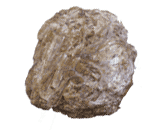 Natural Sillimanite Natural Sillimanite
Sillimanite is an alumino-silicate mineral with the chemical formula Al2SiO5. Sillimanite is a very rare trimorph and it has a common variety called fibrolite.
Color: violet blue, grey green, colorless, brown, green,
Categories: semi-precious stone
Chemical Composition: Al2OSiO4
Crystal Group: Orthorhombic
Refractive Index: 1.658 - 1.678
Hardness: 6 - 7.5
Density: 3.25
Occurrence: France, Madagascar, U.S.A., Sri Lanka, Burma. Kenya
| 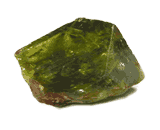 Natural Sphene Natural Sphene
Sphene is also known as calcium titanium silicate.It is named from the greek word for wedge, because of its typical wedge shaped crystal habit.Because of it's high dispersion and refractive index, a well cut sphene can display stunning brilliance. Sphene is somewhat soft and as a result is more suitable as a pendant than as a ring stone. Sphene is rarely very clean.
Color: Green, yellow. brown
Categories: semi-precious stone
Chemical Composition: CaTiSiO5
Crystal Group: Monoclinic
Refractive Index: (1.885-1.990,)-(1.915-2.050)
Hardness: 5.5
Density: 3.52-3.54
Occurrence: Austria, Dheirene-Madagascar, India, USA, Brazil.
| 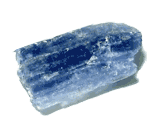 Natural Tanzanite Natural Tanzanite
Tanzanite is a rare gem which has been celebrated as one of the most exciting finds of the 20th century. Manuel D¡¯Souza discovered the gem in 1967 in Tanzania. Because tanzanite is relatively soft, it is not usually set in necklaces and earrings, so the tiara is truly a rarity.
Color: Blue, Blue Purple, Green, Pink.
Categories: semi-precious stone
Chemical Composition: Ca2(Al,OH)Al2(SIO4)
Crystal Group: Orthorhombic
Refractive Index: 1.688 - 1.707
Hardness: 6-7
Density: 3.30 (+.10, -.10)
Occurrence: Tanzania
|  Natural Tourmaline Natural Tourmaline
Tourmaline is actually a group of several different minerals which have similar crystal structures, but complex and variable chemical formulas. Tourmaline is the most varicolored of all gemstones. It occurs in all colors, but red, green, and multicolored are its most famous gem colors.
Color: blue, bluish green, green, greenish blue, green-blue or blue-green, greenish yellow, orangy red, red, red-orange or orange-red, red-purple or purple-red, slightly purplish red, slightly yellowish green, strongly purplish red, strongly yellowish green, very slightly bluish green, yellowish green, yellow-green or green-yellow, colorless, brown, pink
Categories: semi-precious stone
Chemical Composition: (NaCa)(LI,MgFe,Al)9B3Si6(O,OH)31
Crystal Group: Hexagonal
Refractive Index: 1.624(+.005, -.005) - 1.644(+.006, -.006)
Hardness: 7-7.5
Density: 3.06 (.05, +.15)
Occurrence: Brazil, East Africa, Nigeria, Madagascar, U.S.A.
|
|
